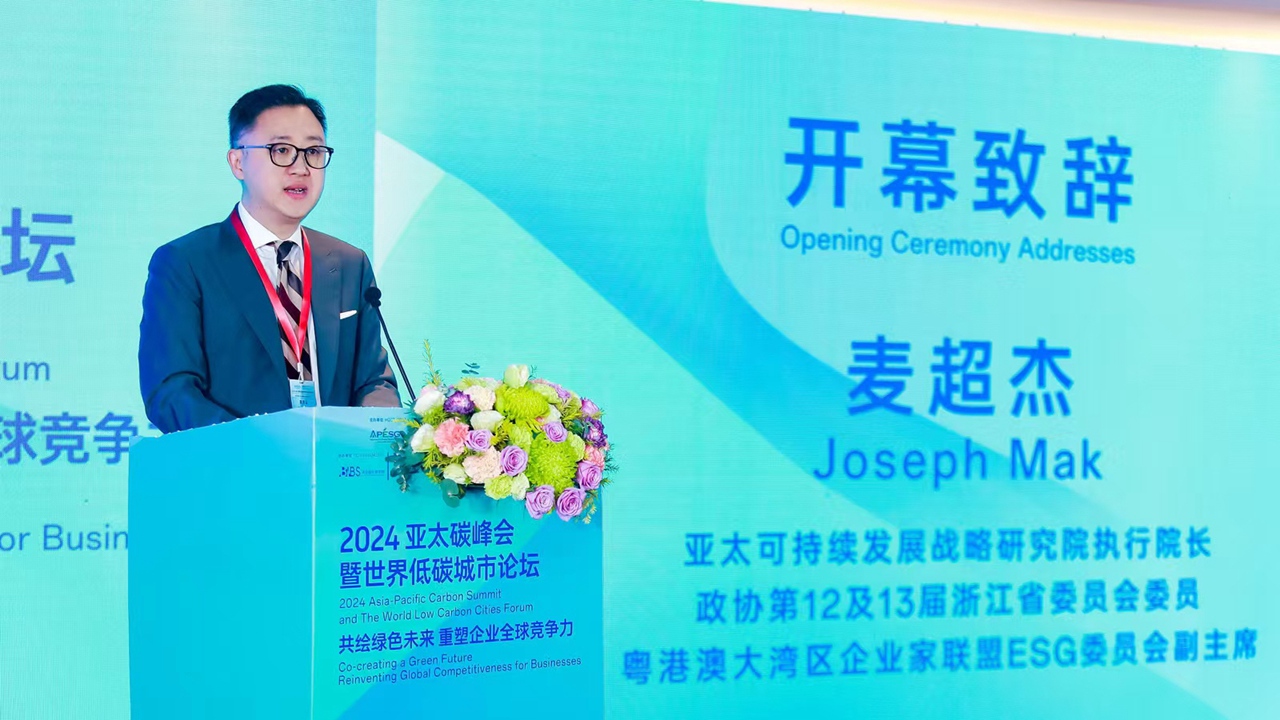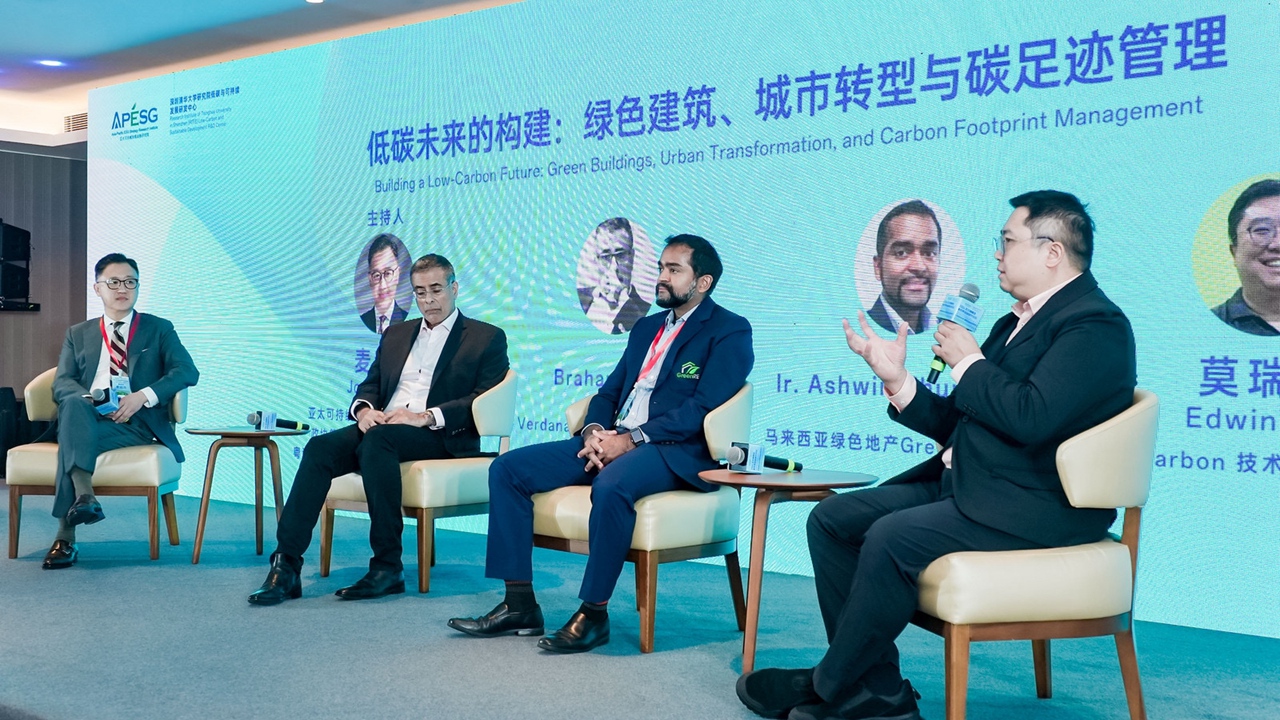Experts share insights on low-carbon development at summit
Writer: Chang Zhipeng | Editor: Zhang Zhiqing | From: Original | Updated: 2024-11-07
The 2024 Asia-Pacific Carbon Summit and the World Low Carbon Cities Forum commenced yesterday in the Hengqin Free Trade Zone in Zhuhai, attracting around 150 experts and scholars from the Guangdong-Hong Kong-Macao Greater Bay Area.
The event aims to discuss the future development of the carbon market and provide insights for the green and sustainable development of Chinese companies as they enter the global market.

Joseph Mak, executive dean of Asia-Pacific ESG Strategy Research Institute, delivers the opening speech. Photos courtesy of the event organizers
In his opening speech, Joseph Mak, executive dean of the Asia-Pacific ESG Strategy Research Institute and vice chairman of the ESG Committee of the Guangdong-Hong Kong-Macao Greater Bay Area Entrepreneurs Alliance, emphasized that as one of the world’s largest carbon emitters, China has made a clear commitment to peak carbon emissions by 2030 and achieve carbon neutrality by 2060. To reach this ambitious goal, China is promoting the rapid development of new and renewable energy sources, including the widespread use of clean energy from wind, solar, and hydropower. Additionally, China is actively working to popularize electric vehicles and implement energy efficiency improvement policies to further reduce carbon emissions.
“To achieve carbon neutrality, we must confront challenges such as investment gaps, technological barriers, and fluctuating market dynamics,” he noted.

Guests discuss the topic of “Building a Low-carbon Future” during a panel discussion session.
During the first keynote speech, Chandra Shekhar Sinha, global lead for Carbon Markets and Finance and Climate Finance and Economics of The World Bank, shared insights on the organization’s practices to support businesses transitioning to a low-carbon economy. He provided the audience with the latest developments and trends in carbon markets and climate finance from a global perspective.
The subsequent keynote speeches and panel discussions covered topics including “Building a Low-Carbon Future,” “Unlocking the Value of Carbon Assets,” and “Capital Power in the New Energy Era.”
The event was organized by the Asia-Pacific ESG Research Institute and the Research Institute of Tsinghua University in Shenzhen (RITS) Low-Carbon and Sustainable Development R&D Center, with the Bay Area Interational School of Beijing Normal University and the Hong Kong Chamber of Commerce Qianhai serving as co-organizers and undertaking units.